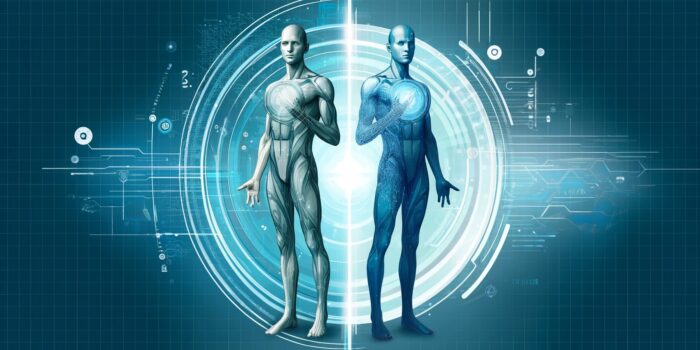This April, Areus Development had the privilege of participating in one of the most anticipated annual gatherings in the biotechnology industry, the Bio-IT World Conference & Expo 2024, held from April 15th to 17th. This event offered an unparalleled opportunity to immerse ourselves in cutting-edge discussions on advanced data storage, data validation and data interoperability.
Now, data is the backbone of biotechnology and healthcare innovation. However, the volume of data being generated far exceeds the capacity of many organizations to analyze and utilize it effectively. This challenge, coupled with the necessity for stringent data validation and seamless interoperability, presents a unique set of obstacles and opportunities for industry leaders.
The Challenge of Unused Data
 The fields of biotechnology and healthcare are awash in data. From detailed genomic sequences to extensive clinical trial data, the volume is staggering. Yet, much of this data remains on the sidelines, stored away in silos or incompatible formats. This unused data is a lost opportunity, slowing down the translation of scientific discoveries into actionable healthcare solutions.
The fields of biotechnology and healthcare are awash in data. From detailed genomic sequences to extensive clinical trial data, the volume is staggering. Yet, much of this data remains on the sidelines, stored away in silos or incompatible formats. This unused data is a lost opportunity, slowing down the translation of scientific discoveries into actionable healthcare solutions.
For instance, much of the data collected in EHRs could be used for predictive analytics, which involves using historical data to make predictions about future outcomes. However, if this data is not integrated into analytical tools or if there are barriers due to data privacy concerns, interoperability issues or simply a lack of tools to analyze such data efficiently, it remains unused. This untapped data could potentially inform more personalized medicine approaches, enhance patient outcomes, and optimize healthcare resource allocation.
A notable example of unused data from 2023 comes from the healthcare industry, where hospitals produce an estimated 50 petabytes of data annually, yet 97% of this data remains unused. This unused data represents a significant potential for improving healthcare outcomes and operational efficiencies if properly leveraged. The insights locked away in this data could be transformative for clinical decisions, patient care, and the optimization of healthcare resources. To utilize this vast amount of unused data effectively, organizations can implement platforms like Microsoft Fabric. This platform integrates and analyzes data from diverse sources, including electronic health records (EHRs), labs and medical devices, using open data standards. By unifying data in this manner, healthcare organizations can generate actionable insights that improve patient care and operational efficiency.
Advanced data storage technologies showcased at the conference pointed towards more scalable, secure, and efficient methods for handling the exponentially growing data from genomic sequencing and biometric databases. These innovations promise to keep pace with the vast data generation in biotech, ensuring that researchers and healthcare professionals can store and access massive datasets more reliably.
Ensuring Data Validation
 Data validation in healthcare is vital for a lot of reasons. It ensures the reliability of clinical data, supports the accuracy of diagnostic tools and safeguards patient care processes. Errors in data can lead to misdiagnoses, inappropriate treatments, and even severe patient safety risks.
Data validation in healthcare is vital for a lot of reasons. It ensures the reliability of clinical data, supports the accuracy of diagnostic tools and safeguards patient care processes. Errors in data can lead to misdiagnoses, inappropriate treatments, and even severe patient safety risks.
Recent years have seen the adoption of advanced technologies such as artificial intelligence, machine learning and blockchain to drive improvements in data validation. One example is from the healthcare industry, specifically in the improvement of data accuracy for electronic health records (EHRs). This involves an AI system designed to verify and cleanse data entered into EHRs, which is crucial for patient care, billing, and research. EHRs often contain errors due to manual data entry, discrepancies in data formats, and misinterpretation of input fields. These errors can lead to incorrect treatment, billing mistakes, and flawed data for research. As the volume and complexity of health data increase, manual validation becomes impractical. This AI tool uses natural language processing (NLP) and machine learning algorithms to analyze and validate the data entered by healthcare providers. The model is trained on a large dataset of verified records, learning patterns and typical error cases in data entry.
Data validation sessions emphasized the importance of accuracy and consistency in data for achieving high-quality research outcomes and reliable clinical applications. Speakers presented cutting-edge tools and strategies designed to improve the integrity of data, which is crucial for making informed decisions in drug development and disease diagnosis.
The Critical Role of Data Interoperability in Modern Healthcare

The ability for different systems and organizations to communicate effectively is more than just a convenience, it’s a necessity, especially for healthcare. Data interoperability refers to the seamless sharing and processing of data across various healthcare systems, ensuring that information flows freely and securely between providers, patients and other stakeholders. This capability is fundamental not only for enhancing the efficiency of healthcare services but also for improving patient outcomes by providing a holistic view of patient health records.
In 2023, the Centers for Medicare & Medicaid Services (CMS), like Avalere implemented the CMS Interoperability and Prior Authorization Rule, which was part of an ongoing effort to enhance data sharing and accessibility in the healthcare sector. This rule aims to streamline the prior authorization processes, thereby enhancing patient data access and fostering API-enabled data exchanges among healthcare providers. This initiative underscores the importance of creating a more interconnected and efficient healthcare system, where data and services are easily accessible across various platforms and stakeholders, reducing delays and improving patient care outcomes
In a noteworthy development for 2023, the World Health Organization (WHO) teamed up with Health Level Seven International (HL7) in a significant collaborative effort. This partnership was solidified through a formal agreement aimed at fostering the global adoption of open interoperability standards. Such standards are vital for the seamless communication and exchange of information between digital health solutions, ensuring that continuity of care is maintained across all levels of health systems. This move marks a crucial step forward in enhancing the efficiency and effectiveness of healthcare delivery worldwide.
Data interoperability was a key theme, with discussions on the need for standardized frameworks that can integrate diverse health data systems. This interoperability is essential for enabling seamless communication across various healthcare and research platforms, thereby enhancing collaborative efforts and speeding up innovations in treatment and care.
The Bio-IT World Conference & Expo 2024 offered a compelling glimpse into the future of biotechnology through its intensive focus on advanced data storage, data validation, and data interoperability. The event not only highlighted the critical role of these technologies in enhancing research capabilities but also emphasized their potential to revolutionize personalized medicine and complex biological data management.





